Trump appearing at RNC was ‘exceptional’ for our country: Rep. Byron Donalds
Rep. Byron Donalds, R-Fla., shares details about the emotional moment former President Trump appeared during night one of the Republican National Convention on ‘The Ingraham Angle.’
A gunman tried to take down President Ronald Reagan in March 1981.
The president instead rose physically, spiritually and politically after surviving the near-death experience, according to one of the people who knew him best.
"Surviving the assassination attempt deepened his faith and drove his faith even deeper into his soul," historian and Reagan biographer Craig Shirley told Fox News Digital in a phone interview this week.
"Reagan displayed grace under pressure that day to the American people. His likability soared, even among people who didn’t agree with him."
The historian and political insider said he believes Donald Trump is about to enjoy the same surge in personal faith, popularity and power as did Reagan because he displayed innate "courage" on Saturday evening, just moments after a bullet came within a mere inch from shattering his skull.
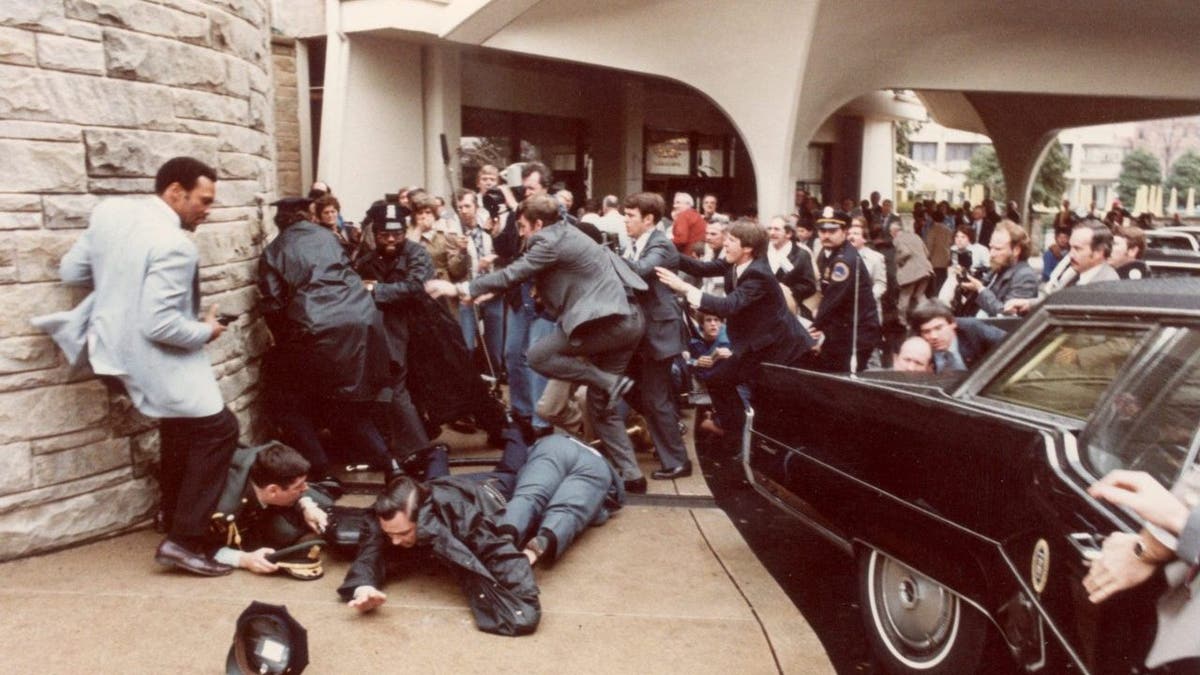
View of police officers and Secret Service agents as they dive to protect President Ronald Reagan amid a panicked crowd during an assassination attempt (by John Hinckley Jr.) outside the Washington Hilton Hotel, Washington, D.C., in March 1981. (Hulton Archive/Getty Images)
"Even Trump’s harshest critics can’t deny that he’s a brave man," said Shirley. "Just look at how he handled himself after he got shot. He didn’t cry. He didn’t whine."
"He didn’t go into the fetal position," Shirley added. "He stood there like a man. He pumped his fist at the crowd and said, ‘Fight, fight, fight’ as the Secret Service is rushing him off the stage."
Shirley worked on Reagan’s 1980 and 1984 election campaigns, both of which he won easily. Shirley served in the Reagan White House and has since authored six biographies about the Great Communicator.
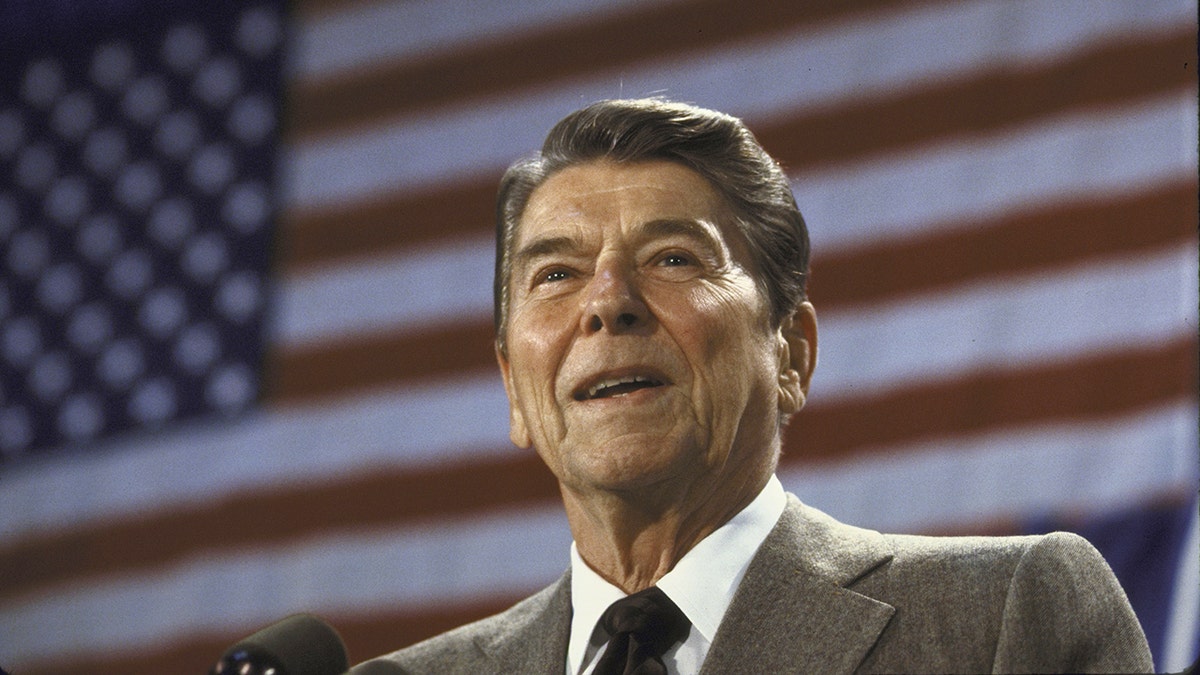
President Ronald W. Reagan is shown speaking at a fundraiser in Oct. 1986. (Dirck Halstead/Getty Images)
Reagan, like Trump, was a populist Republican and D.C. outsider who enjoyed support in the Corn Belt and Bible Belt — but within the Beltway was despised.
After Reagan survived being shot by deranged gunman John Hinckley, Jr., "it totally changed his relationship with the American people," said Shirley.
TRUMP FLAG PHOTO JOINS PANTHEON OF IMAGES THAT CAPTURE AMERICAN RESOLVE, ERASE POLITICAL DIVIDES
"Reagan lost half the blood in his body when he was shot. One lung collapsed, he was near going into shock, and he had a ‘devastator’ bullet in his chest that was one inch from his heart. If those aren't traumatic conditions, I don't know what is."
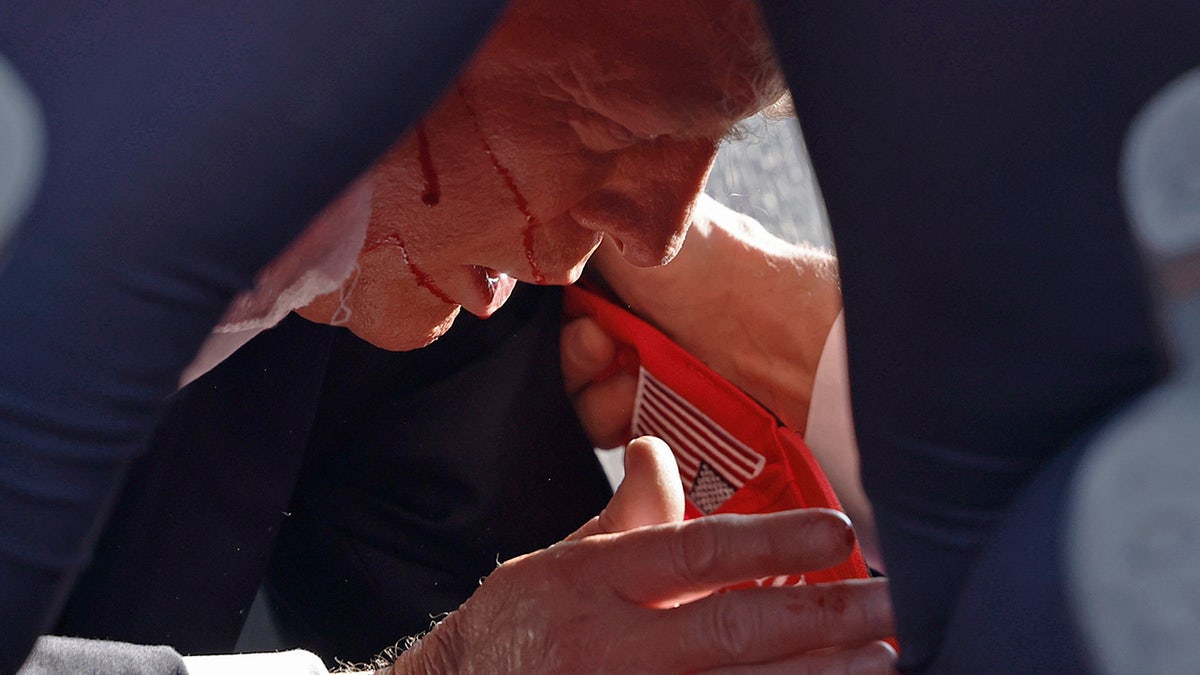
U.S. Secret Service tend to former President Donald Trump onstage at a rally on Saturday, July 13, 2024, in Butler, Pennsylvania. (Anna Moneymaker/Getty Images)
Reagan handled the trauma personally with increased devotion to his Christian faith and his faith in leading the United States through the existential struggle for survival against the "evil empire" Soviet Union in the Cold War.
‘TRUMP IS A WARRIOR’: LEE GREENWOOD REFLECTS ON RNC PERFORMANCE OF ‘GOD BLESS THE USA’ IN MILWAUKEE
"You were touched by the hand of God," Georgetown University President Fr. Timothy Healy told Reagan afterward, according to Shirley's account.
Reagan stoically dismissed the spiritual reawakening and near-death experience publicly, however.
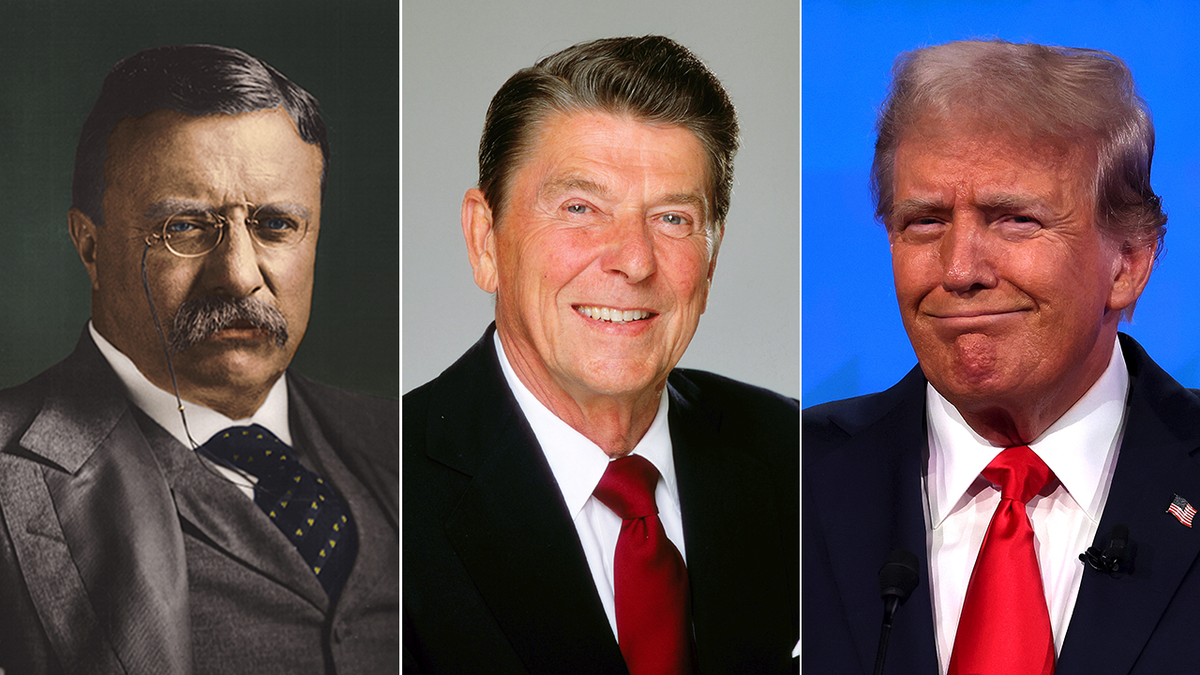
From left to right, U.S. Presidents Teddy Roosevelt, Ronald Reagan and Donald Trump. All were shot as politicians — and all survived the assassination attempts. (Getty Images)
"Honey, I forgot to duck," he famously said to first lady Nancy Reagan, in cheeky dismissal of a trauma that nearly killed him.
"There is something irresistible about a man who takes an event so momentous and makes it seem small," said Shirley.
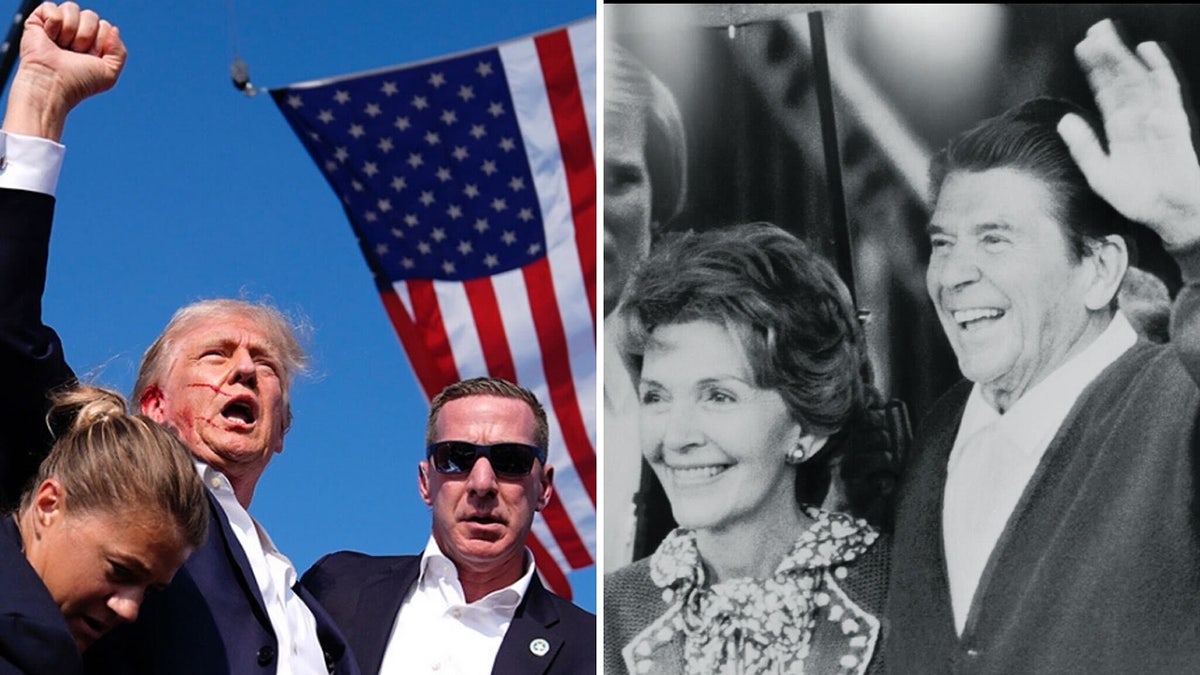
Donald Trump reacts after being shot on the campaign trail in Butler, Pennsylvania, July 13, 2024. First lady Nancy and President Ronald Reagan leave the Washington, D.C., hospital where the president spent 13 days in March 1981 recovering from gunshot wounds. (AP photo/Evan Vucci; Getty Images)
John F. Kennedy was a U.S. Navy hero who saved his PT-109 crew during World War II. He publicly deflected praise by saying, "They sunk my boat," when asked to explain his heroics.
CLICK HERE TO SIGN UP FOR OUR LIFESTYLE NEWSLETTER
Shirley said Robert F. Kennedy's last words as he lay dying from a bullet wound in the head were concern for the safety of the people around him.
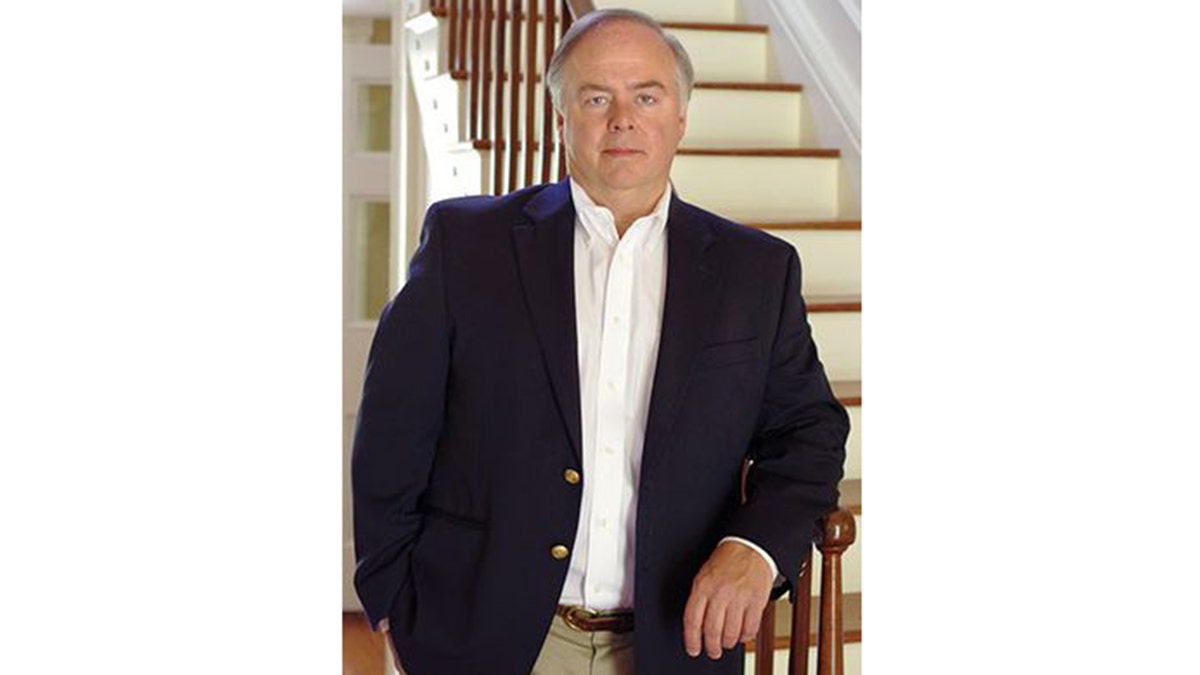
Historian Craig Shirley is the author of six Ronald Reagan biographies. He anticipates Trump emerging more faithful, more determined and more popular after his near-death experience — much as Reagan did. (Courtesy Craig Shirley)
Teddy Roosevelt famously delivered an 84-minute campaign speech in 1912 with a bullet lodged in his chest after surviving an assassination attempt. His shirt was soaked in blood when he finally went to the hospital.
CLICK HERE TO GET THE FOX NEWS APP
Shirley anticipates Trump emerging more faithful, more determined and more popular after his near-death experience, much as Reagan did.

People hold signs endorsing former President Donald Trump along with his pick for Vice President, Sen. JD Vance of Ohio. (Leon Neal/Getty Images)
"Reagan in a way reintroduced himself to the American people after he was shot," said Shirley. "They saw in him after that a grace under pressure they didn't have a chance to see before. It totally changed his relationship with the American people."
For more Lifestyle articles, visit www.foxnews.com/lifestyle
Reagan went on to a 49-state landslide election victory over Democrat Walter Mondale in 1984.









































